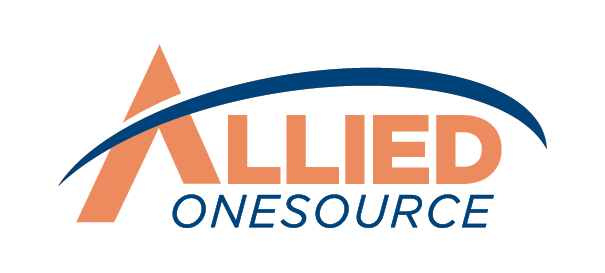The Importance of Internships: Gaining Practical Experience Before Graduation
If you're a student wondering what will get you hired after graduation, here's the answer: internship experience. Before you have a degree, an internship gives employers the one thing they value most: proof you can perform in a real workplace.
According to the National Association of Colleges and Employers, more than 62 percent of interns receive full-time job offers from their internship companies, making these opportunities critical stepping stones in your career journey.¹
Employers want evidence that you've navigated workplace challenges, taken professional feedback, and contributed to a team, not just passed exams. Internships provide that evidence while helping you build skills, clarify your interests, and develop a professional network.
Whether you're looking for your first opportunity or wanting to make the most of one you've landed, this guide will show you how internships can transform your career prospects.
Why Internships Matter
Here are some benefits of internships.
Real-World Experience vs. Classroom Knowledge
Textbooks teach theory. Internships teach application. In classrooms, you learn concepts and principles that form the foundation of your field. During internships, you put these concepts into practice through tangible projects with real consequences. This hands-on experience reveals the gap between academic knowledge and workplace expectations.
Employers value this practical experience because it demonstrates your ability to adapt. You learn to navigate workplace dynamics that no course can adequately prepare you for. Companies see interns who can bridge theory and practice as valuable assets.
This practical knowledge often outweighs perfect grades when hiring managers make decisions. Your internship proves you can translate academic concepts into business results.
Early Exposure Leads to Smarter Career Decisions
One of the biggest mistakes job seekers make? Applying blindly. Without real-world exposure, it’s hard to know which career paths match your strengths and interests. An internship helps you stop guessing and start understanding what roles feel right.
Think of it as field research. A finance major might discover they prefer business operations after working with cross-functional teams during a summer internship. A marketing student might realize they’re more analytical than creative when tasked with campaign metrics. These realizations don't come from textbooks; they happen in the rhythm of day-to-day work.
Internships also help you understand the non-negotiables of your future work life. Do you thrive in fast-paced environments, or do you do better in structured, process-driven settings? These discoveries shape your future job search and increase your chances of long-term career satisfaction.
Read More: Supercharge Your Career and Well-Being With These 2024 New Year's Resolutions for Workplace Success
You Gain What School Can’t Teach
Classrooms can't simulate real workplace challenges. Internships expose you to unpredictable situations that require adaptive thinking. You learn to handle difficult clients, navigate team dynamics, and manage competing priorities. These
practical skills become your professional foundation.
Technical expertise develops through hands-on application. Administrative skills grow when coordinating projects with real deadlines. Problem-solving abilities strengthen when facing unexpected obstacles. These workplace competencies build career maturity that textbooks simply cannot provide. Employers recognize this practical intelligence as evidence of your readiness for full-time roles.
How Internships Signal Readiness to Employers
Completed internships send powerful signals to potential employers about your capabilities. They demonstrate initiative and commitment to your career path before graduation. Employers view internships as
evidence of professional socialization. Your resume stands out because you've already navigated workplace expectations and understood professional norms.
Companies value internship because it reduces their hiring risk. Your track record in a professional environment indicates future performance. Employers recognize that former interns require less training and onboarding time. They integrate more quickly into teams and understand workplace expectations from day one.
This readiness translates into immediate productivity, which explains why many companies use internship programs as direct talent pipelines. Your internship experiences tell employers you're already prepared for the professional world.
Finding the Right Internship Opportunity
University career centers offer curated listings specific to your field. Online job boards like LinkedIn, Indeed, and Handshake feature thousands of internship postings with detailed requirements. Industry-specific websites often list specialized opportunities not found elsewhere. Professional associations frequently maintain internship databases for members.
How to Evaluate
Evaluate potential programs for their growth value. Look for clearly defined projects rather than vague responsibilities. Seek opportunities that include mentorship components and regular feedback sessions. Programs that expose you to multiple departments indicate strong development potential. Companies with track records of hiring interns full-time deserve priority in your search.
Application Timeline
Applications for summer internships typically open between December and March. Fall internships usually require applications by July. Spring positions often have October deadlines. Large companies with formal programs set earlier deadlines than smaller organizations. Start researching at least six months before your target internship season to prepare competitive applications.
Turn Internships into Full-Time Offers
Internships let you gain exposure and work experience. These opportunities can transform into permanent positions when you approach them strategically.
Choose Internships That Grow With You
Not all internships offer equal value. Some companies see interns as temporary help. Others view them as future employees. Learn to distinguish between these approaches before applying.
Focus on programs with meaningful project-based work. Seek positions that include shadowing opportunities with team leaders.
Prioritize internships with structured feedback systems and performance evaluations. Select experiences that match your career interests rather than convenient options. The best internships feel like previews of full-time roles with appropriate challenges and responsibilities.
Learn From the Small Stuff — Because It’s Not Actually Small
Filing papers. Answering phones. Running reports. These may seem like minor jobs, but they teach the habits that drive professional growth. You build time management, communication skills, and accountability. These are unteachable soft skills that hiring managers prioritize.
It’s tempting to underestimate simple tasks. But showing up consistently, completing assignments accurately, and maintaining a good attitude during routine work shows something crucial: professionalism.
Entry-level roles, especially in fast-paced industries like light industrial, logistics, or customer service often begin with repetitive tasks. But how you handle these tasks matters. They set the tone for your reputation and open the door to higher-level responsibilities.
So, mastering the basics during your internship builds a strong foundation. Learn several skills, including technical, on-the-job skills, and soft skills like attention to detail, punctuality, and communication. These are all transferable skills that can be used in any job. They’re also what every manager is silently evaluating whether you’re aware of it or not.
Show Up Like a Team Member, Not Just an Intern
Your attitude determines how colleagues perceive you. Temporary visitors receive limited attention. Future team members receive investment. Show genuine interest in the company's work through thoughtful questions. Volunteer for additional responsibilities when appropriate. Follow through on commitments with consistency and quality.
Express curiosity about the broader business beyond your assigned tasks. Take initiative on projects without constant prompting. Build a reputation for reliability in small assignments before seeking larger ones. These behaviors distinguish you from typical interns. They demonstrate the mindset employers seek in permanent hires.
Build a Network That Works for You
Internships create natural networking opportunities. Each colleague represents a potential connection for your career. These relationships develop through consistent performance rather than forced conversations. Quality work builds advocates who later recommend you for positions.
Connect with mentors who can guide your professional development. Thank your supervisors specifically for their guidance and support. Exchange contact information with team members before your internship ends. Maintain these connections through occasional professional updates. These relationships often lead to job referrals and industry insights unavailable to other candidates.
Ready to kickstart your career with an internship?
At
Allied OneSource, we connect college students and entry-level job seekers with internships that offer real-world experience and a pathway to your future career. Whether you're looking to build professional skills, expand your network, or gain hands-on experience, we’re here to help you find the right opportunity.
Start your journey today — reach out to explore internship programs that can shape your career.
Reference
1. Intern Hiring Is Stable for 2024. (2024, April 19). National Association of Colleges and Employers. https://www.naceweb.org/job-market/trends-and-predictions/intern-hiring-is-stable-for-2024











